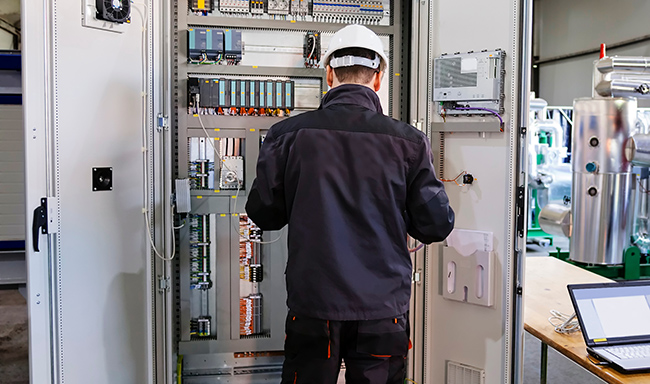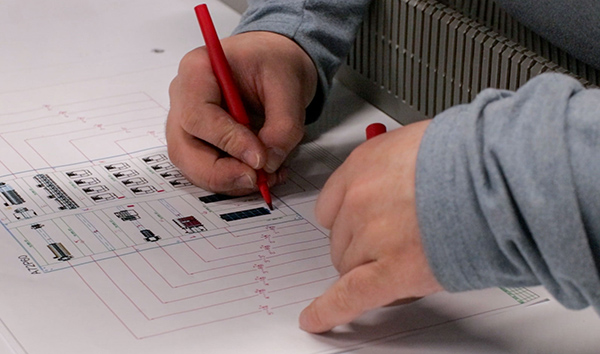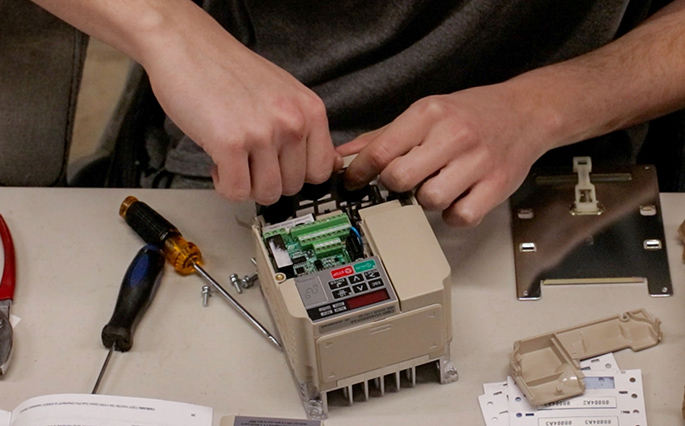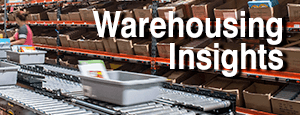UL 508A Panel Certification: Why It’s Critical for Reliability and Safety
The process of certification ensures higher quality

Most every automated warehouse system utilizes programmable logic controls control systems that interface between hardware and other software. PLCs easily integrate with other control systems – Human-Machine Interfaces (HMIs), WMS, WCS and enterprise resource planning software for better monitoring, data collection and overall system management. They provide robust, local and flexible programming that can evolve as needs change.
Control panels range from very basic to extremely complex. Because of this variety, programming, designs and fabrication can vary from application to application, from provider to provider. This is where UL Certification becomes important.
What are the reasons to demand certified control panels?
Commitment to excellence is baked in: training, development and processes
Panel fabricators are likely to engage in training and processes that produce superior controls.
The UL evaluates applicants for knowledge, process and quality control standards. These manufacturers must complete training courses on UL 508A industrial control panels. Not only that, but they must also maintain staff qualifications to keep their certifications. They must have at least one technical representative at each manufacturing location to help them ensure quality and standards maintenance. That representative helps interpret and apply these standards.
UL 508A certified panel manufacturers are likelier to train, maintain and update their skillsets for higher quality, more innovation and more effective automation solutions.
Above and beyond the requirements imposed by UL, the fact that a panel manufacturer has been through this process helps indicate its commitment to quality. These fabricators are more likely to engage in further training and knowledge sharing. This means they are likelier to provide a more innovative, more cost-effective and better PLC controls solution.
Quality assurance
UL certification requires rigorous testing and inspections to ensure control panels meet high standards. This can lead to fewer defects, longer product life, and overall higher customer satisfaction. Certification often aligns with international standards, making it easier to sell products in global markets. This can be particularly important for businesses looking to expand or compete internationally.
Accurate circuit diagrams, documentation and warnings are part of the process

Certified panel fabrication companies understand the correct way to document their work and place the appropriate nameplates. A deep understanding of UL 508A, table 52.1 is critical. Certified fabricators provide accurate and understandable circuit diagrams as part of the process. These methods help define and communicate the right warnings and document any special cases in terms of dealing with the control panel. Be sure your panel fabricator can provide short-circuit ratings. These SCCR ratings should be present on the nameplate and help you comply with NEC codes.
Companies in the Industrial Controls Panel Shop Program go through training for enclosure environment ratings, wiring and safety markings. These are critical to safer, better panel fabrication. They’re certified to conform to American and Canadian electrical code authorities.
Control panels must pass compliance checks and inspections
During field evaluations, compliance inspectors may try to ensure the panel is built to the correct standards. Failure to meet the standard for type, placement and other factors may lead to days of rework and revision. UL-certified panel fabricators are certified to help ensure that you avoid these issues. Other issues – such as panels that may be located in hazardous areas – are likelier to be accounted for in the design and fabrication process as well when you use a certified panel fabricator.
- Certified panel fabricators are less likely to see panels red-tagged on implementation.
- Because these fabricators meet UL regulations, their panels are also broadly accepted by regulatory authorities.
- Some insurance companies may require UL certification as a condition of coverage because it reduces claims risks. UL certification can help in defending against liability claims by demonstrating adherence to industry standards.
- The training and certification regimen required by UL means the fabricator is usually more familiar with inspection and implementation issues, which helps reduce delays and other issues.
Certified cables and components are critical for success

UL-certified panel fabricators utilize the right components and cables – those that are also traceable for certification. These components are critical for safety, reliability and long-term functionality. You can trace their origin and their capabilities easier when needed.
The UL panel shop program includes training and certification in sourcing the right components. This makes them more adaptable and capable of sourcing a wider variety of components that can reduce panel costs and increase flexibility. The ICP program helps them find certified, safe and functional hardware and wiring that makes your panel better and more adaptable.
The case for certification: faster, smoother and better “brains” of your automation solution
Certified panel fabricators – like Cisco-Eagle’s Systems Technology Group – are better positioned to help companies get the most from their automated systems. Certified companies help you create the right solution, certified for performance and built to last. These systems should let you operate safer and more efficiently. They should be built for the future, with ease of troubleshooting, upgrades and other needs as your operation changes.
More resources:
- Comparison: Conveyor Systems and Autonomous Mobile Robotics
- Why systems integrators with PLC panels fabrication offer better solutions
- How Material Handling and Automation Increases Labor Flexibility
Tags: Manufacturing, conveyor systems, UL
Scott Stone is Cisco-Eagle's Vice President of Marketing with 35 years of experience in material handling, warehousing and industrial operations. His work is published in multiple industry journals an websites on a variety of warehousing topics. He writes about automation, warehousing, safety, manufacturing and other areas of concern for industrial operations and those who operate them.



